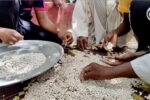Khalid Esti: From the streets of resistance to a cell of starvation
25 August 2025
A member of the South Omdurman Emergency Response Rooms, grassroots volunteer groups that emerged to provide humanitarian aid during the war, revealed to Ayin the untold story behind the detention and death of Khalid Al-Zubair Shan Al-Malih, known among his comrades as “Khalid Esti”
Khalid, a young man in his early thirties from Omdurman, Al-Fitehab, Block 9, was no ordinary activist. He had been on the frontlines of Sudan’s revolution, contributing to the Al-Fitehab and Omdurman coordination committees, the December Revolution Martyrs’ organisation, and the establishment of emergency rooms in his neighbourhood. He was also a committed member of the Communist Party. “Khalid met all the conditions of targeting by the army and the Islamists,” the South Omdurman Emergency Response Rooms (ERRs) source told Ayin.
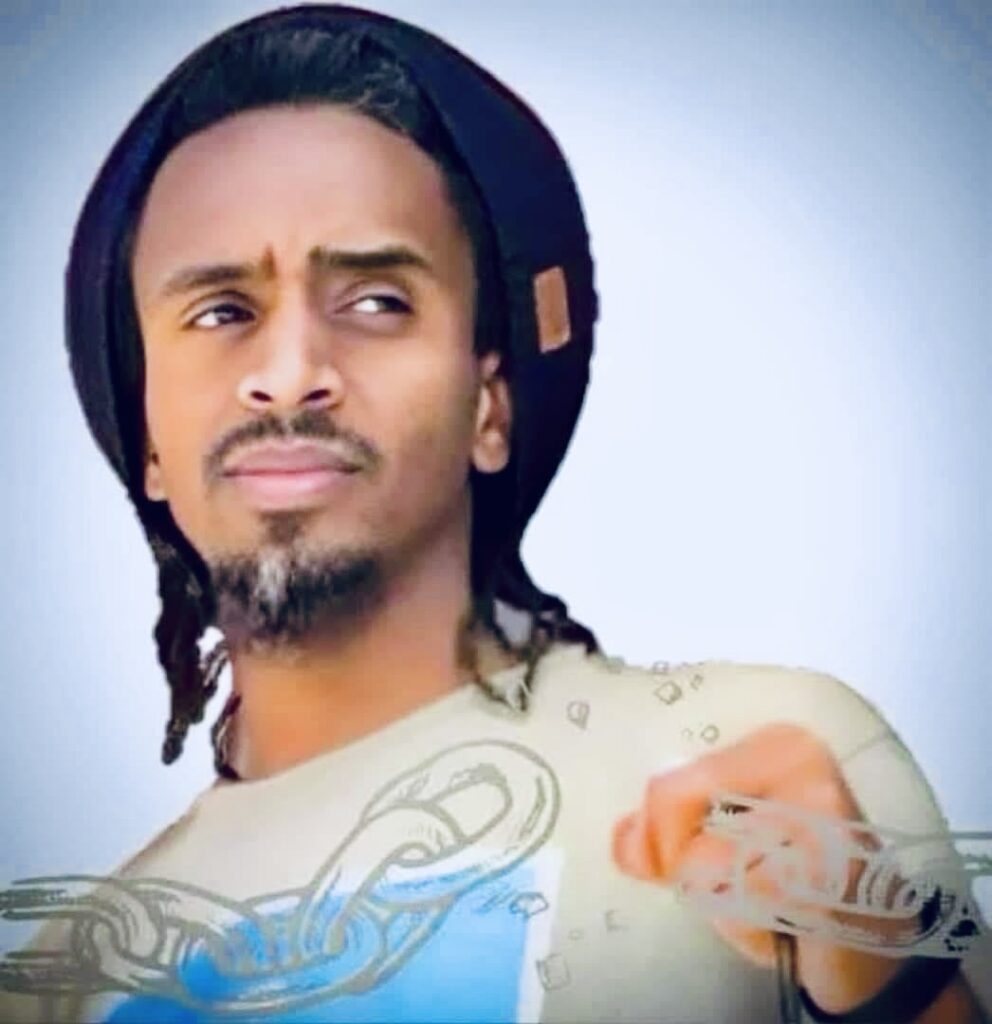
Accused for tribal affiliation
Originally from Banbanusa in West Kordofan, Khalid belonged to the Messeriya tribe, a community now sometimes associated with fighters alongside the paramilitary Rapid Support Forces (RSF). According to the source, this was enough to put him under suspicion. “The army used the collaborator charge against him, as they do against activists now. While one of his brothers may have joined the RSF, Khalid was never part of them.”
Despite the risks, Khalid refused to leave Al-Fitehab when his family fled. He stayed determined to continue helping local residents. Soldiers arrested him on 1 November, 2023. “Rumours spread that he was even shot during the arrest,” said the source. For months, no one knew his fate—communication had collapsed in Omdurman due to internet and phone blackouts.
By February 2024, rumours of his imprisonment began to circulate, and in May, unverified reports of his execution surfaced. Witnesses who later saw him at the Engineers Corps headquarters in Omdurman described him as unrecognisable due to his severe weight loss.
In August 2025, official confirmation finally surfaced. His brother posted that the family had received news of his death, which they believed to be the result of torture by deliberate starvation. The army never handed over the body, conducted an autopsy, or issued any statement. “The family learnt from a soldier that a prayer was held for him, and he was buried near the Engineer Corps,” the source said.
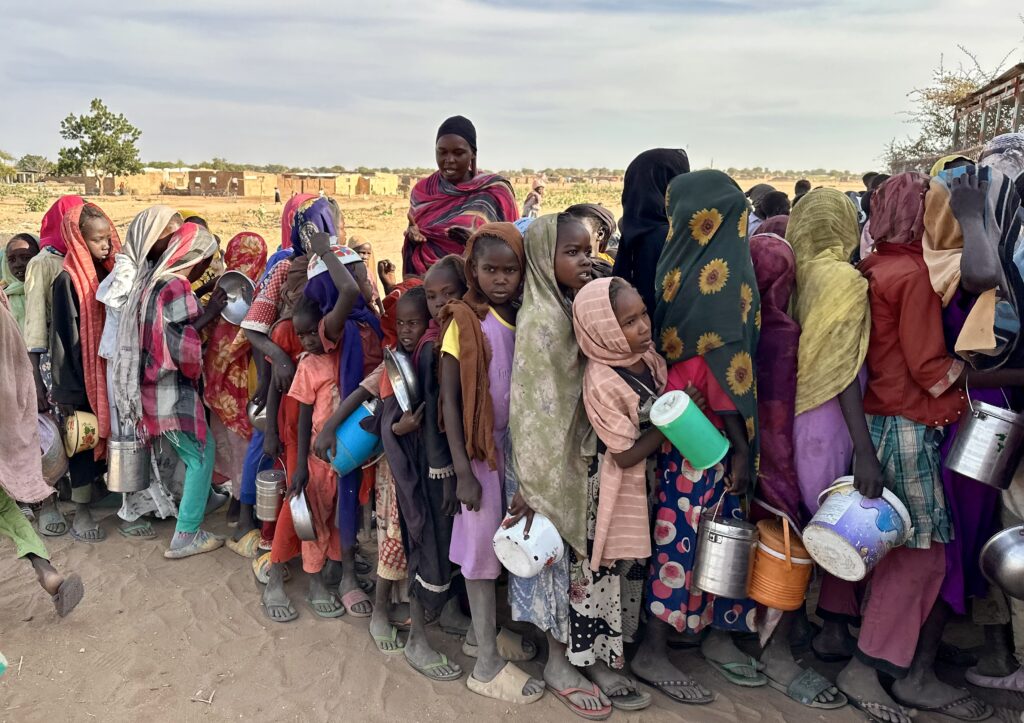
A systematic crackdown on emergency rooms
Khalid’s story mirrors a broader campaign of repression against Sudan’s ERRs. “These days there’s a security clampdown on the emergency rooms,” another ERR member based in Al-Jazeera State told Ayin. “Several of our colleagues have been arrested. The interrogations all focus on where the funding comes from and what we provide in return.”
The volunteer explained that the ERRs are technically illegal unless registered with the army-controlled Humanitarian Aid Commission (HAC), making them vulnerable to harassment. “Yes, there have been incidents of flogging with whips, verbal abuse, and other mistreatment during detention by the security cell,” the source said. The cell included the army, the North Shield militia, the Al-Bara Bin Malik Islamist militia, and the Joint Forces members, though, he added, “the arrests and procedures have all been carried out by the army.”
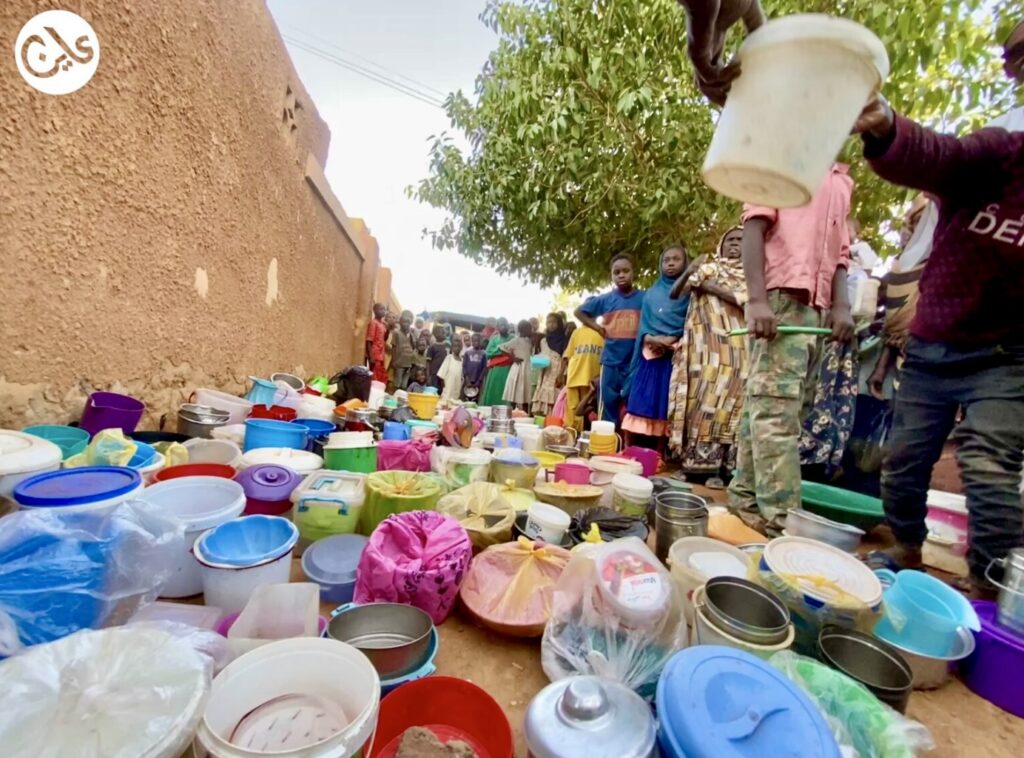
An assault on the humanitarian space
For political analyst Dallia Abdelmoniem, Khalid’s death and the targeting of ERRs reflect a wider assault on humanitarian space. “Operational work by aid and humanitarian workers, local or international, has been based on the whim of either the army or RSF,” she told Ayin. Bureaucratic hurdles and deliberate obstruction have strangled relief operations.
Both sides have referred to the ERR volunteers as collaborators. The warring parties have targeted aid workers, as evidenced by the convoy attack in Darfur a few months ago. Before, recognition might have offered protection, but that no longer applies—everyone is either a target or collateral damage.”
Researcher Hamid Khalafallah sees Khalid’s death as part of a deliberate counter-revolutionary strategy. “We’ve seen the pattern: when fighting stops between SAF and RSF, both turn on civilians instead. This is a counter-revolutionary war where the main enemy is civilians—especially pro-democracy activists and grassroots movements,” he explained.
At the core of the repression is the vague but devastating label of a “collaborator”, Khalafallah says. “This accusation has made it very easy to criminalise activists. SAF accuses people of collaborating with RSF, and RSF accuses them of collaborating with SAF. It justifies detention, torture, and even killing,” he added. Khalafallah highlighted how lists of targeted activists have circulated in Khartoum and elsewhere. “These lists send a signal that not only is it okay, it’s encouraged for security forces to find these people and kill them.”
We’ve seen the pattern: when fighting stops between SAF and RSF, both turn on civilians instead. This is a counter-revolutionary war where the main enemy is civilians—especially pro-democracy activists and grassroots movements.
Hamid Khalafallah, Researcher
The targeting of ERRs is taking place when volunteers are already facing immense challenges. Amidst boundless challenges and limited support, the ERRs often serve as the sole lifeline for thousands of people affected by conflict. The conflict has driven roughly 54% of the population into hunger, 15% of this figure being children, many of whom are acutely malnourished. In some areas of Darfur, one in three children suffers acute malnutrition. “We are always running out of food and other supplies,” says Hannah*, an ERR volunteer who supports the community kitchens in Kassala, eastern Sudan. “Thankfully, the displaced understand the constraints we work under, but it’s still painful having to turn away children when we run out.”
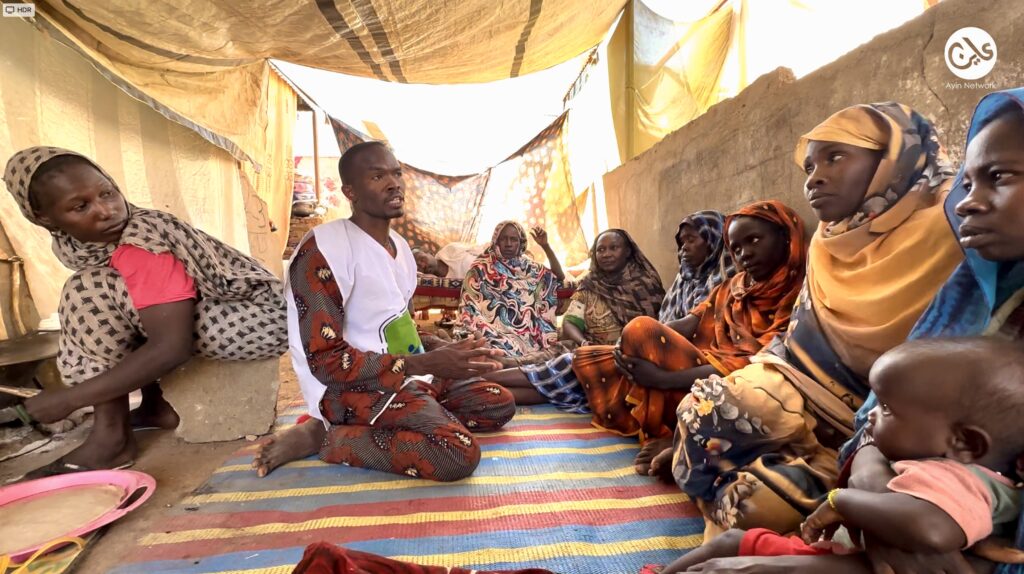
A political execution
For the Sudanese Communist Party, Khalid’s killing was not random but a political assassination. “Assassinations will not terrify us… Nor will the blood of the martyrs halt the revolutionary tide,” the party said in a statement released in August 2025. The party described Khalid as a leader “without tribal or narrow political bias, guided only by his commitment to freedom, peace, and justice.” The statement condemned the army for exploiting Khalid’s western Sudanese origins to justify his killing, describing this action as “a shameless reflection of racist policies that undermine the unity of the people.”
Khalid’s fate illustrates the dangers facing Sudanese activists and humanitarian volunteers. His tribal identity, political activism, and commitment to community service combined to make him a prime target in the eyes of Sudan’s military rulers, his ERR colleagues told Ayin. The use of starvation as a tool of torture, the denial of his body to his family, and the secrecy surrounding his burial all point to an effort not only to eliminate him but also to erase his memory.
Yet his story also exposes the wider machinery of repression. ERRs and grassroots groups across Sudan are criminalised under the banner of “collaboration”, with activists enduring detention, torture, or worse. As Khalafallah warned, “Even if they are not killed or detained, they are under continuous fear because of this accusation.”
For Abdelmoniem, the tragedy lies in the lack of accountability. “The international community is content with statements of horror and dismay, but not much more. No one is held accountable.” Khalid’s death, intended as a warning, has instead drawn renewed attention to the risks faced by Sudan’s activists and grassroots groups. Rather than silencing his cause, it has underscored the broader struggle of civilians and volunteers working under constant threat.



